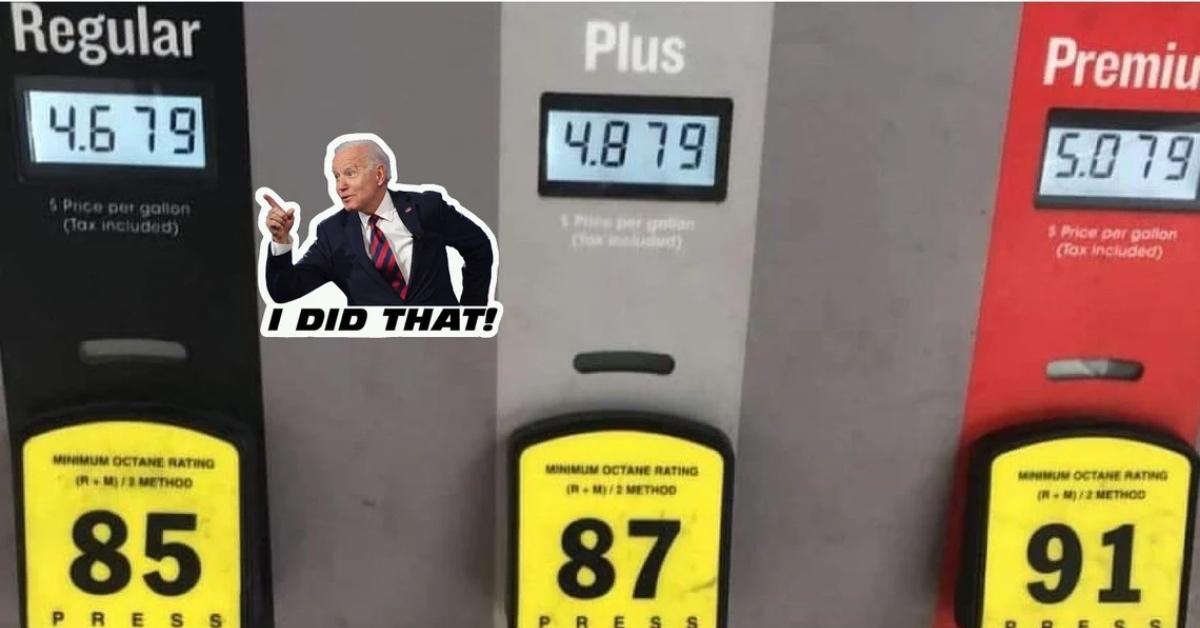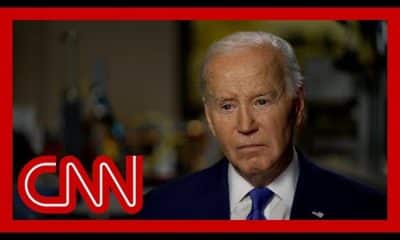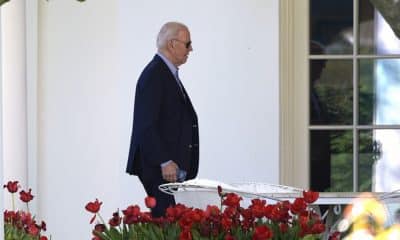Election News
Biden Sell’s Off Emergency Oil Reserves Ahead of Nov 8 Elections
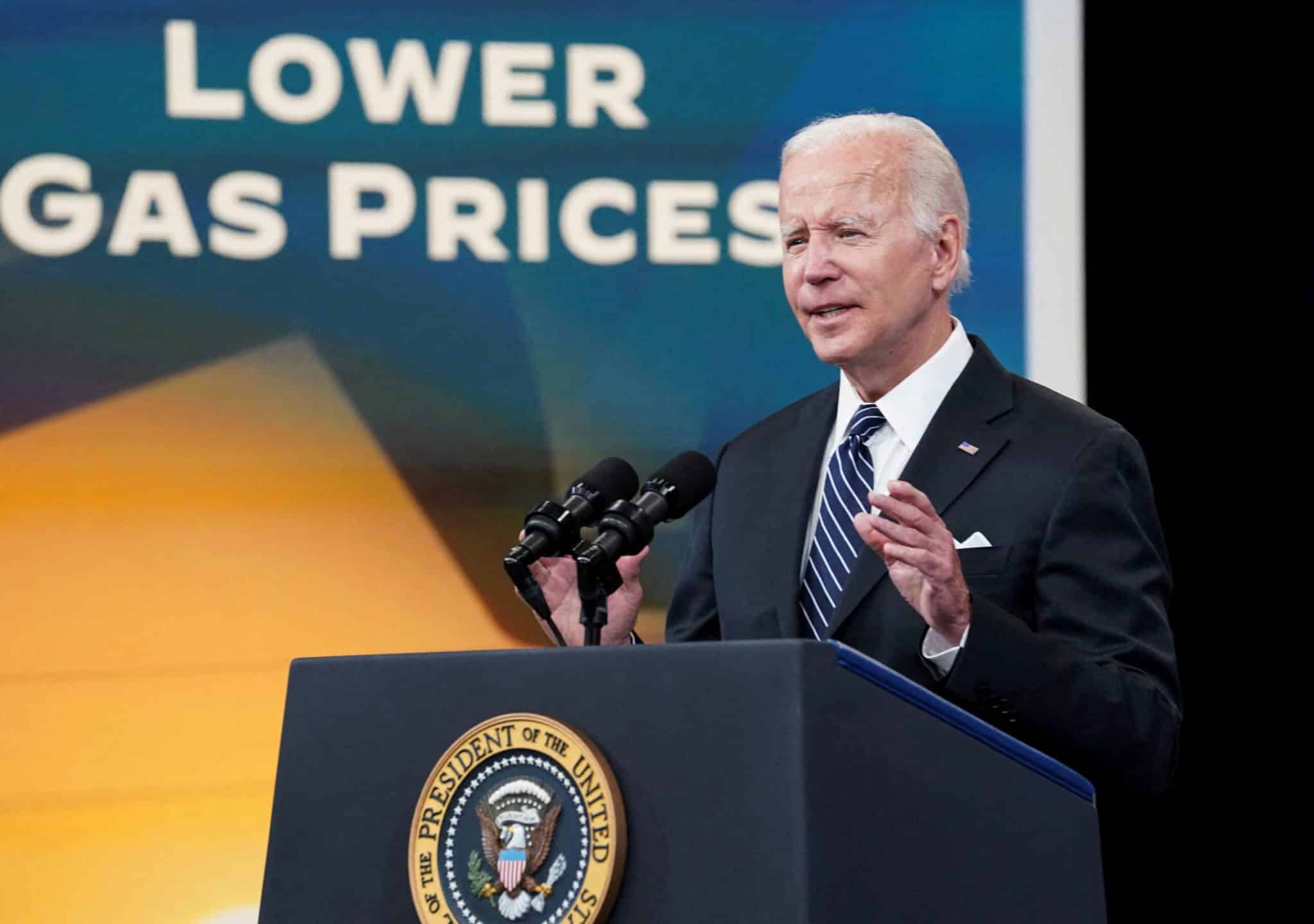
On Wednesday, U.S. President Joe Biden announced a plan to sell off the remainder of his pre-release from the U.S. emergency oil reserve by the end of 2022 and begin replenishing the stockpile to reduce high gasoline prices ahead of the Nov. 8 midterm elections.
Biden’s goal is to increase supply sufficiently to prevent near-term oil price rises that would penalize Americans and reassure U.S. drillers that the U.S. government would enter the oil market as a buyer if prices fall too low.
He said 15 million barrels of oil would be offered from the emergency Oil Reserve as part of a record 180 million barrel release that began in May and that the U.S. is ready to tap supplies again early next year to keep prices under control.
“It’s what we’re calling a prepare and release plan,” Joe Biden said at a White House event. “This enables us to respond rapidly to world events and avert oil price rises.”
Joe Biden’s use of the federal government’s Oil reserves to manage oil price surges and attempts to enhance U.S. output demonstrate how the Ukraine crisis and inflation have altered the policies of a president who campaigned to reduce the country’s reliance on the fossil fuel industry.
The White House felt an increased sense of urgency after the Saudi-led Organization of Petroleum Exporting Countries irritated Biden, sided with Russia and agreed to a production cut, prompting Biden to remark that the US-Saudi relationship has to be revalued.
“With today’s statement, we’re going to continue to stabilize markets and lower prices at a time when other countries’ actions have produced such instability,” Biden said.
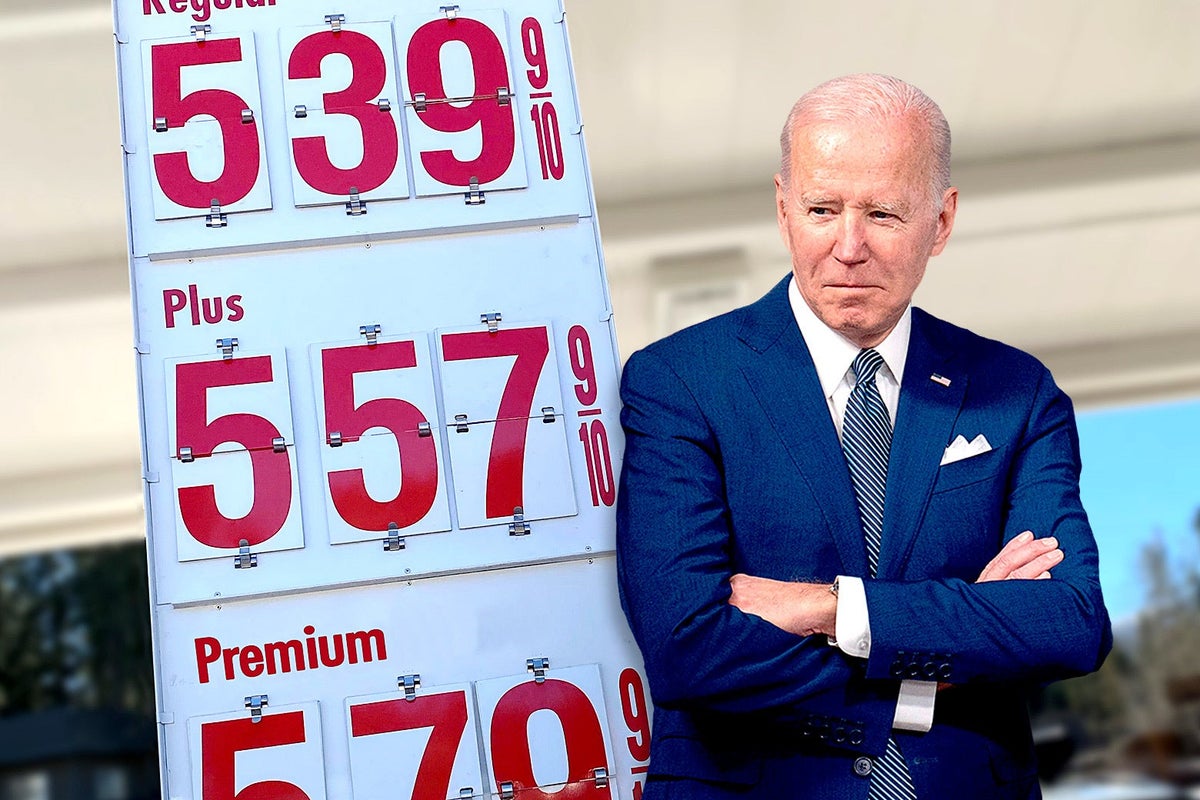
Biden blamed rising crude and gasoline costs on Russian President Vladimir Putin’s invasion of Ukraine, adding that prices had plummeted 30% from their peak earlier this year.
He also reminded U.S. energy corporations, gasoline merchants, and refiners to stop using record profits to buy back stock and instead invest in production.
Prices aren’t lowering fast enough, he claims.
“Families are hurting,” he says, and rising gasoline prices strain their finances.
Faced with criticism from Republicans who claim he is using the SPR for political reasons rather than an emergency, the president also stated that the nation’s stockpiles would be replenished in the coming years.
He stated that his goal is to replenish supplies when U.S. crude is about $70 per barrel, a price he believes will allow firms to profit while still being a good value for taxpayers. On Wednesday, the U.S. benchmark was around $85 per barrel.
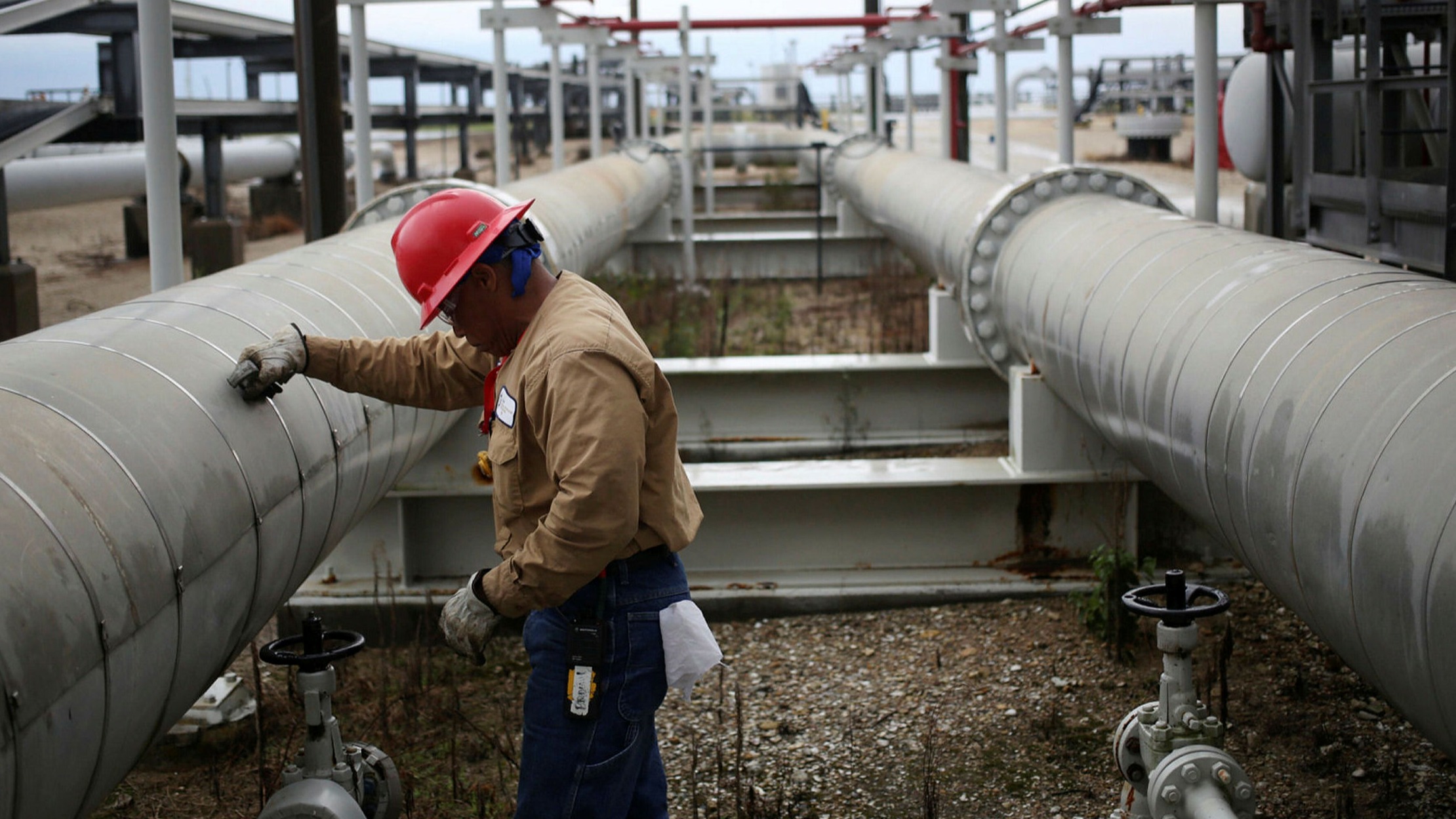
According to Biden, the SPR, already at its lowest point since 1984, is more than half empty with more than 400 million barrels of oil.
The administration intended to stop selling the 180 million barrels in November. Purchases by businesses such as Marathon Petroleum Corp (MPC.N), Exxon Mobil Corp (XOM.N), and Valero Energy Corp (VLO.N) were, however, slower than expected over the summer, with approximately 15 million barrels remaining unsold.
Presidents in the United States have limited influence over fuel prices, but given the country’s vast gasoline consumption – the largest in the world – high costs at the pump can be political poison. Retail gasoline prices have decreased from a high in June, but they remain higher than historical averages and significantly contribute to inflation.
The disparity between wholesale and retail prices has also risen, prompting the White House to issue cautions against price gouging.
With the new SPR repurchase guarantee, Biden believes oil companies will be more confident in investing in production and stop pushing stock buybacks.
“So, to all businesses, I say, “You’re sitting on record profits, and we’re offering you more confidence.” So you may take action right now to improve oil production, “He stated.
Companies “You should not use your profits to repurchase stock or pay dividends. Not now, not while there is a war raging, “He asked them to lower the prices they charge at the pump.
In recent weeks, the oil sector has grown increasingly apprehensive that the administration may take the dramatic step of prohibiting or limiting gasoline or diesel exports to replenish dwindling U.S. supplies.
They have urged the government to withdraw the option, which officials are unwilling to do.
Biden is to Blame for High Gas Prices
When President Biden began office, a gallon of normal gas cost an average of $2.38. It now costs $3.92.
Mr. Biden has attempted to blame Russian President Vladimir Putin and his invasion of Ukraine for the rising cost, referring to it as “Putin’s price hike, and now he’s blaming Saudi Arabia.
” However, gasoline had already reached $3.53 per gallon when the red megalomaniac invaded. As a result, Mr. Putin was not to blame.
The president has taken numerous attempts to reduce the price but to no avail. He released millions of barrels from the Strategic Petroleum Reserve (SPR), but practically every analyst believes this is only a temporary solution.
By the end of March, a gallon of gas cost $4.23, so he drew on the vast emergency reserve, allowing the discharge of 125 million barrels of oil. However, the United States consumes approximately 20 million barrels of oil daily, so Mr. Biden’s release was brief.
Prices levelled off for roughly five weeks, hovering just above $4. Then it all started over: $4.62 at the end of May and even $5.00 by mid-June.
However, economists argue that the SPR release is not the cause of declining prices. Prices had risen so far that many had just stopped buying.
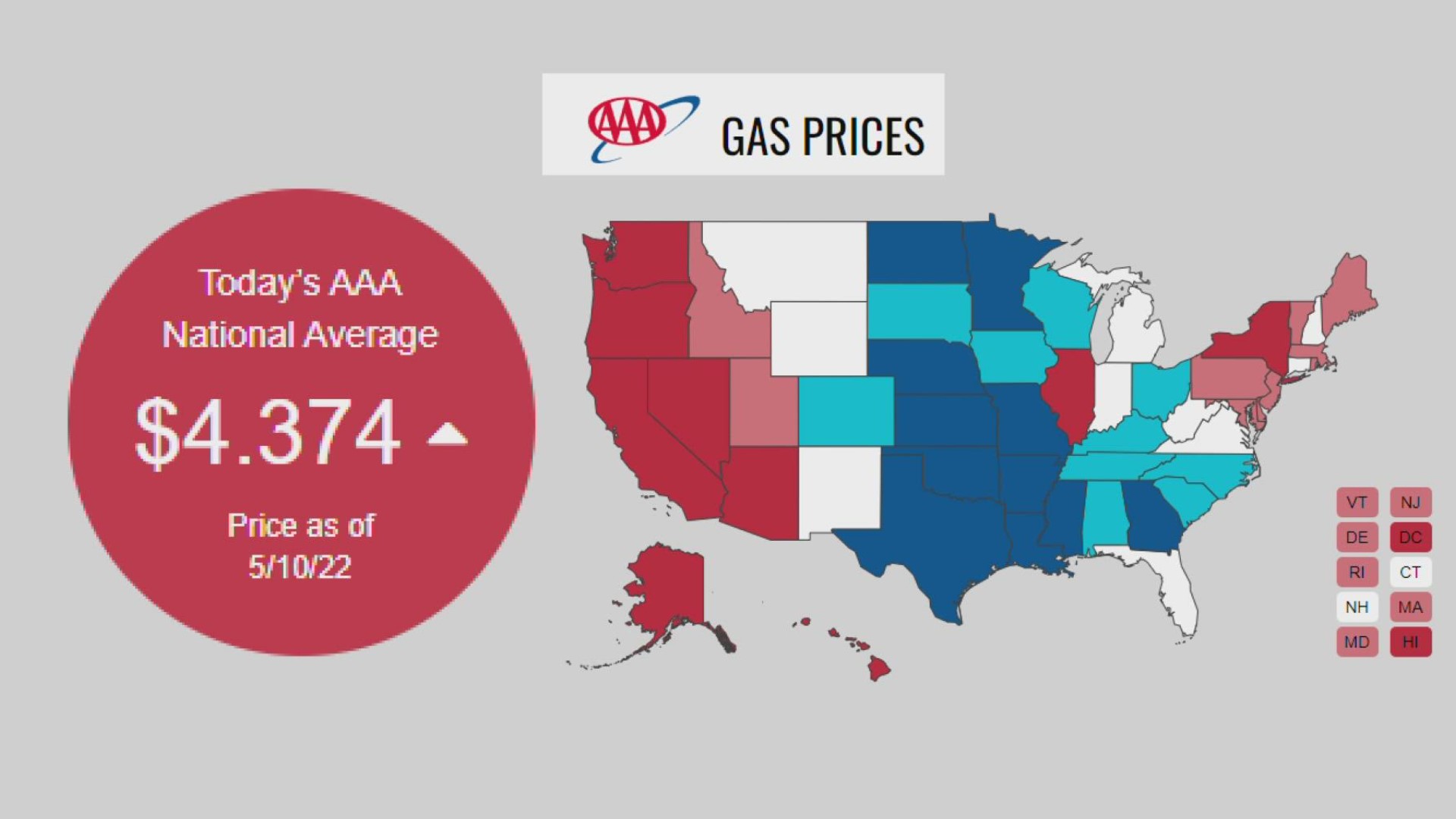
Prices began to rise again after 99 days of decline. Reporters questioned White House press secretary Karine Jean-Pierre about it all last Tuesday.
“You stated that the president was to blame for the drop in gas prices. “Is the president to blame for rising petrol prices?” a reporter inquired.
“It’s far more sophisticated than that,” Ms. Jean-Pierre explained. “You are aware of this. There have been global challenges to which we have all responded. When I say ‘all,’ I mean that other countries have had to deal with it since the pandemic.
There was the pandemic, and then there was Putin’s war. In addition, Putin’s war has raised petrol costs at the pump. “We’ve seen that over the last few months,” she remarked.
As prices began to climb again, Mr. Biden began to blame oil firms, despite taking credit for reducing costs.
According to the letter acquired by The Wall Street Journal from Energy Secretary Jennifer Granholm to seven major refiners, the Biden administration has gone so far as to advise them to limit fuel exports.
“Given the historic level of U.S. refined product exports,” Ms. Granholm said in an August letter to seven U.S. refiners, “I again advise you to focus in the near term on growing inventories in the United States rather than selling down present stockpiles and boosting exports.”

However, the refiners retaliated. “Banning or restricting the export of refined products would certainly lower inventory levels, reduce domestic refining capacity, raise consumer fuel costs, and alienate U.S. friends during a time of conflict,” business leaders said in response to Ms. Granholm.
Mr. Biden also halted much of the oil production growth in the United States.
“Recall that the United States imported 10.1 million barrels per day (BPD) of crude oil in 2005, with OPEC accounting for 4.8 million BPD (48%) of that total. The SPR held 685 million barrels. With the United States buying 10.1 million BPD of crude oil at the time, there was enough oil to last 68 days,” Forbes noted.
Mr. Biden even went to Saudi Arabia to ask for more oil (remember the fist bump with Crown Prince Mohammed bin Salman?). He almost went empty-handed, save for a vague agreement in which Saudi Arabia stated that it would “help global oil market balancing for continued economic growth” but never specified how much petroleum would be delivered.
Mr. Biden stated that he was not there for oil but that he and the prince “privately agreed that oil-producing states would agree to increase output at an Aug. 3 summit,” according to The New York Times.
While the Organization of Petroleum Exporting Countries (OPEC) declared an increase in output in August — 100,000 barrels per day — it didn’t last long. OPEC stated this month that it would cut oil production by two million barrels a day due to a glut in the global crude oil market.
In the end, Mr. Biden deserves none of the credit — and all of the blame — for rising gas costs.
Source: VOR News, Reuters
Politics
Trudeau Liberals Electoral Chances are as Good as Dead
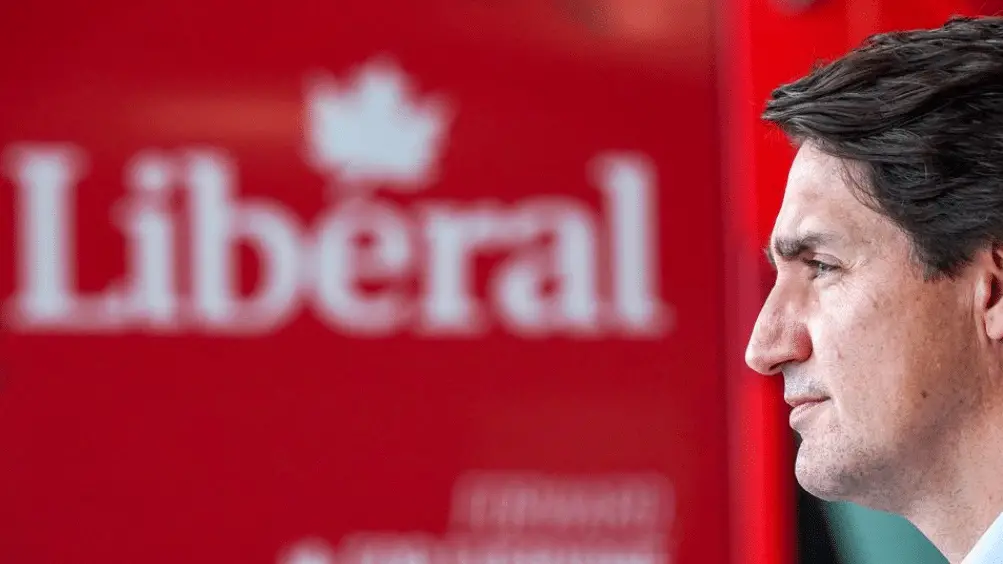
Justin Trudeau’s Liberal Party’s popularity has plummeted to record lows in recent polls. Scandals and his carbon tax weakened Trudeau’s support after years of support. Many election Analysts belive Justin Trudeau and his Liberals will not survive the next election.
The newest Angus Reid survey shows the Conservatives leading nationwide, with Trudeau and his Liberals losing support in most provinces, especially Ontario and Quebec. Analysts say Trudeau’s leadership fatigue, unhappiness over inflation, ridiculous carbon tax, and continual policy flip-flopping are driving voters away.
Trudeau’s carbon tax is unpopular across Canada. Many Canadians hate its higher prices for homes and businesses.
Critics say it unfairly targets energy, threatening jobs and prosperity. Skeptics believe the tax fails to solve global climate challenges despite claims it will reduce emissions.
Provincial governments like Alberta passionately oppose federal intrusion. The carbon tax still divides society.
Steven Guilbeault, Trudeau’s Environment and Climate Change Minister, has lost support from neutral public and provincial governments and the powerful climate action lobby.
Don Braid of the Calgary Herald says Chickens with their heads cut off run around in circles. In politics, the federal Liberals are starting to exhibit this postmortem behaviour.
Environment and Climate Change Minister Steven Guilbeault, the core cabinet fowl who said no new roads should be built in Canada, continues to press his climate extremism.
“The result is political fiasco.”
Alberta and Saskatchewan have always been bitterly opposed to many measures. But Guilbeault is now losing support from the public, provincial governments that once were at least neutral and, crucially, the powerful climate action lobby.
The disasters are self-inflicted. Trudeau and Guilbeault stuck to the carbon tax even after the policy’s disastrous deflation by the “carve out” for home heating oil, a benefit mainly to Atlantic Canada.
Their faux-tough response — nobody else gets that, dammit! — actually cost farmers a break that had been planned, but suddenly looked like another exemption.
The carbon tax, revealed as a purely political tool, is ripe for axing by a potential new leader like Mark Carney. Even New Democrats have argued that the tax should exit, stage left.
Now, Guilbeault has introduced amendments to the Impact Assessment Act, allegedly bringing it into line with the Supreme Court ruling that found the law seriously intrudes on powers rightly belonging to the provinces.
Trudeau’s power grabs shot down
Guilbeault has never acknowledged this was a defeat. He treats the ruling as a simple policy problem rather than a 5-2 thumping by judges not usually known for hostility to federal power grabs.
Alberta was predictably furious about the amendments. Premier Danielle Smith always said Guilbeault would make a gesture and proceed as usual, forcing yet another court challenge.
“When you look at the unconstitutionality of the first draft, you can’t just make tweaks and bring this in line with the Constitution,” says Rebecca Schulz, Alberta’s minister for environment and protected areas.
“That’s really the issue here. Minister Guilbeault still has the ability to involve himself in projects that are within provincial jurisdiction.
“In the end, this piece of legislation remains unconstitutional. We are going to be taking this back to court and I’m confident in our position, because their changes don’t actually address the issues that we’ve raised.”
Trudeau’s middle ground game not working
The Impact Assessment Agency, the powerful regulatory body that oversees all this, said in a statement: “No decisions to designate projects will be taken. Consideration of any new designation requests will only resume, as appropriate, once amended legislation is in force.”
Most striking is the fury from the climate action lobby toward Guilbeault’s amendments.
“Overall, the bill is a complete federal abdication to address proposed high-carbon projects such as in situ oil mines,” Steven Hazell, a retired environment lawyer and federal regulator told the National Observer, Canada’s best chronicler of climate stories and policy.
Green party Leader Elizabeth May said the government was “erring on the side of stupidity.” May sees the court decision as an opportunity to go further with legislation, not retreat to meet demands of provincial jurisdiction.
Election News
South Africa Braces for a Milestone 2024 Election
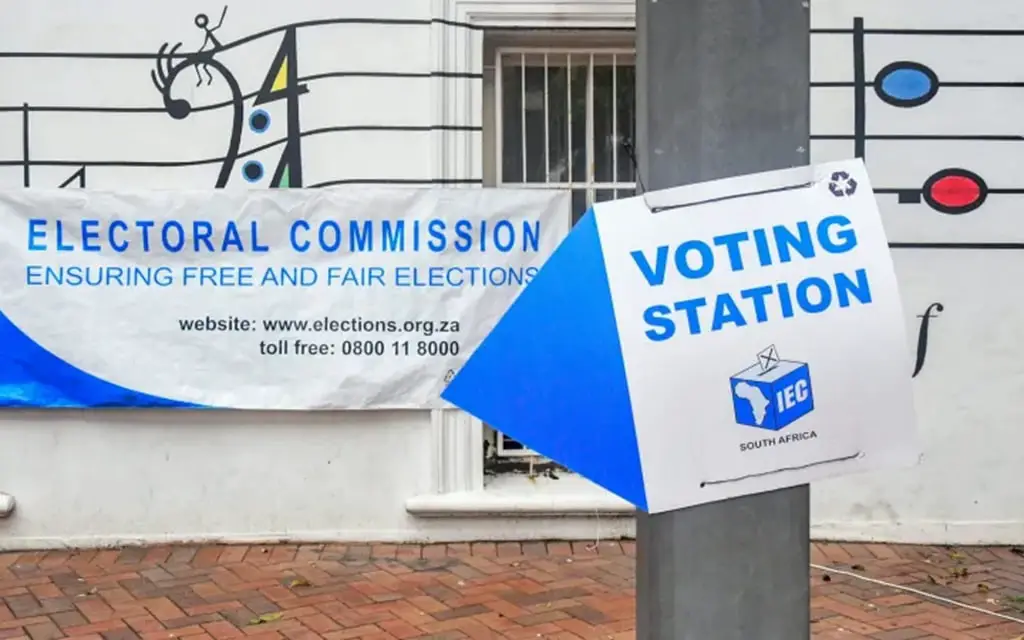
After 30 years of dominating South Africa politics, the ruling African National Congress will confront its most difficult election this month, with most opinion surveys predicting it will lose its parliamentary majority for the first time.
The ANC’s reputation, once admired under Nelson Mandela’s leadership and regarded as a beacon of hope by the Black majority following the fall of apartheid in 1994, has been tarnished by record levels of unemployment, widespread poverty, the collapse of some government services, and more than a decade of corruption scandals, leaving voters disillusioned.
President Cyril Ramaphosa is hoping for re-election on May 29. However, if the ANC loses its majority, it would be forced to form a government in a coalition, which would be a first for the country and might complicate governing in Africa’s most sophisticated economy.
South Africans do not directly elect their president, but rather vote for parties that are allotted seats in Parliament based on their share of the ballot. Following that, lawmakers select the head of state.
Ramaphosa was a major member in the ANC in the early 1990s, and he was once considered Mandela’s apprentice. He left politics to become a successful businessman before returning to serve as South Africa’s deputy president in 2014. He became president in 2018 when Jacob Zuma resigned amid corruption charges.
Ramaphosa has tried to repair the ANC’s credibility by cracking down on government corruption. However, during his president, unemployment has climbed to 32%, the highest in the world, and he has struggled to reduce poverty.
Electricity Crisis in South Africa
An electricity crisis has caused 62 million power outages across the country as a result of problems at the state-run electricity supplier. It had a negative impact on the economy and Ramaphosa’s reputation as someone who could solve South Africa’s problems, even though the blackouts were caused by mismanagement during the Zuma administration.
The ANC is still projected to win the most votes, but if it obtains less than 50%, it will require coalition partners to reelect Ramaphosa, who is 71 years old.
John Steenhuisen leads the Democratic Alliance, the largest opposition party. The centrist DA has claimed to “rescue” South Africa from the ANC’s corruption and ineptitude, but has yet to win a national election. The DA received 22% of the vote in the last national election in 2019, while the ANC won 62%.
The DA reached a pre-election deal with smaller opposition parties, thinking that their combined vote would secure a majority and depose the ANC. However, they would all need to dramatically expand their share, which is considered implausible.
Economic Freedom Fighters
Steenhuisen, 48, is the sole white leader among South Africa’s major political parties. In a society where race remains at the forefront of national awareness, critics argue that the DA serves the interests of the white minority more than the 80% of South Africans who are Black.
Since its founding in 2013 by Julius Malema, a former ANC youth leader ousted from the ruling party, the Economic Freedom Fighters have risen quickly to become South Africa’s third largest party in Parliament.
His fiery, far-left language has made the 43-year-old South African politician the most divisive, but his argument that the ANC has failed poor, Black South Africans has found momentum, particularly among unemployed and disenfranchised youth.
The EFF has advocated for mine nationalization and land transfer to poor Blacks. The party, which adheres to Marxist doctrine, claims that economic disparity based on race persists decades after apartheid, with whites generally wealthy and Blacks impoverished.
Security concerns for the 2024 election
Malema and other EFF MPs have frequently interrupted opponents’ speeches in Parliament and gotten into scuffles with security personnel, bringing a militant brand of politics to the heart of South Africa’s democracy. The EFF is a potential coalition partner for the ANC, while neither party has stated whether there is an agreement.
Former President Zuma added a fresh dimension when he declared in December that he would leave the ANC he once commanded and return to politics with a new party.
Zuma’s MK Party is unlikely to threaten the top three, but it is expected to severely diminish the ANC vote just as the ruling party confronts its most difficult electoral test. The 81-year-old former leader continues to command support, particularly in his home region of KwaZulu-Natal.
His reemergence has also raised security concerns for the election, as his conviction for contempt of court and subsequent prison sentence in 2021 sparked a week of rioting and looting that resulted in the deaths of over 350 people in South Africa’s worst violence since apartheid’s final days.
Zuma is battling in court over whether his criminal history bans him from running for Parliament. There is concern about unrest if he gets disqualified. Even if he isn’t, his new reputation as an agitator is sure to exacerbate tensions ahead of a key election.
Source: AP
People Also Reading:
Election Violence Increasing in Mexico, 30 Candidates Already Killed
Election Violence Increasing in Mexico, 30 Candidates Already Killed
Election News
Biden Blasted for CNN Interview Saying “Americans Have the Money to Spend”
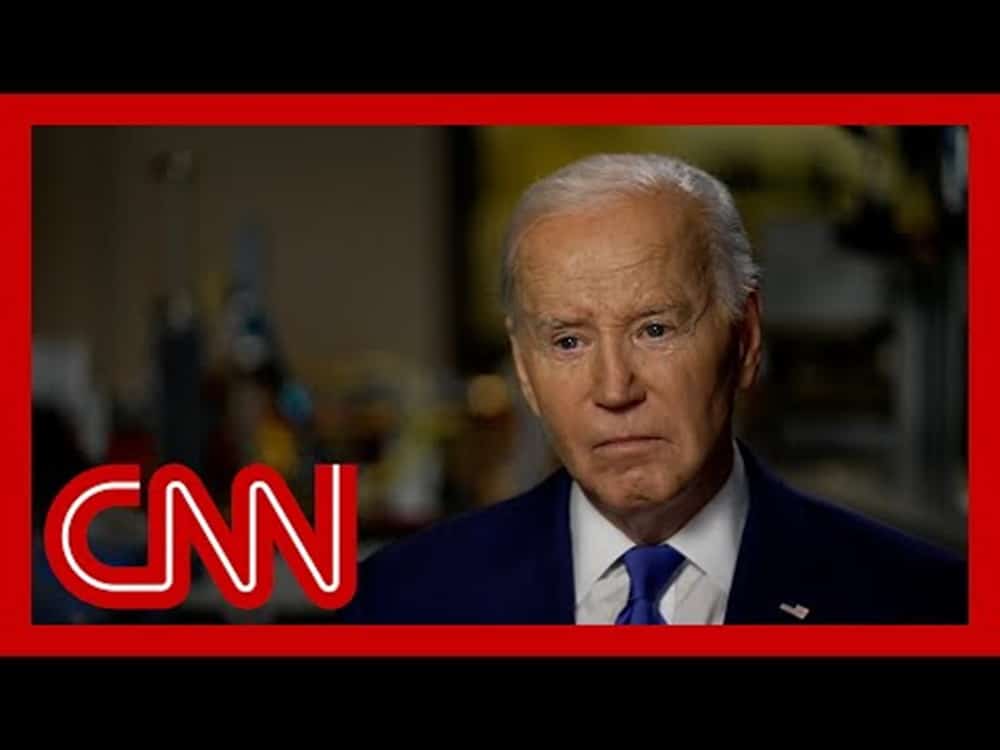
In a rare appearance with CNN, President Biden refused to acknowledge that Americans’ troubles with inflation saying Americans have more money in their pockets thanks to my policies. “They have the money to spend” he told CNN.
According to polls, voters are concerned about Biden’s economic policies. He did admit that inflation, one of the major problems that harmed Biden’s popularity during the first half of his administration, was real.
‘It is true, but the fact is that if you look at what people have, they have enough money to spend,’ he asserted. He blamed the lack of consumer confidence on ‘greedy companies’.
‘It irritates them, as much as me, that you must spend more. For example, consider the whole concept of shrinkflation. It’s around 20% less for the same price; this is corporate greed. It is corporate greed, and we must deal with it.’
Biden’s words sparked outrage on social media, despite the fact that many Americans are still struggling.
One critic remarked on X: ‘Most people don’t have the money because they are honest, unlike pathological liar Joe!’
Another on X stated; ‘He is the most stupid president our country has ever had, and that is how history will remember him.’
‘The man is out of touch with everything,’ said another.
He admitted that inflation was an issue, but opted to blame ‘greedy businesses’ for the public’s lack of trust in the economy.
Biden’s approval Rating Plummeting
In a recent CNN poll, Biden’s approval ratings for the economy (34%) and inflation (29%) were both poor. When it comes to electing a president, voters are most concerned about the economy.
‘The polling data has been inaccurate all along,’ Biden said of the figures, disputing the effectiveness of phone polls.
‘We’ve already turned it around,’ Biden said when asked if he was running out of time to change voters’ perceptions of him with less than six months until Election Day.
‘I guess I’m pleased with the campaign’s progress. And, from what I’ve seen, most people don’t truly focus and make up their minds until the fall. There’s a lot going on,’ he added.
In an interview with CNN done in the battleground state of Wisconsin, Biden stated why he believes the polls are wrong and warned Israel that if it invades Rafah, he will withhold US arms.
Robert Kennedy Jr a Wildcard
Biden’s re-election campaign has highlighted its large fundraising efforts and on-the-ground presence in battleground states. They also point out that Trump is required to appear in New York for the trial.
Meanwhile, Biden is dealing with an uncertain Middle East and progressives who are dissatisfied with his unwavering support for Israel and the treatment of Palestinian refugees.
Then there’s Robert Kennedy Jr.’s independent presidential campaign. Both Trump and Biden’s campaigns are concerned that Kennedy will play a spoiler role, diverting votes away from them.
Trump has stepped up his criticism on RFK Jr., and Biden has announced a dozen Kennedy family endorsements to offset RFK Jr.’s use of the clan’s political legacy.
Biden’s health remains a concern. The president will turn 82 just weeks after Election Day, November 5, and is already the oldest president in American history; Trump is 77.
His approval rating remains at a low 38 percent, according to Gallup polls.
-

 Sports5 months ago
Sports5 months agoSaints’ Aggressive Play-Calling Ends Up Coming Back To Hurt Them In Loss To Rams
-

 Business5 months ago
Business5 months agoNike Says It Will Cut $2 Billion In Costs In A Major Warning For Consumers
-

 Business5 months ago
Business5 months agoFederal Court Revives Lawsuit Against Nirvana Over 1991 ‘Nevermind’ Naked Baby Album Cover
-
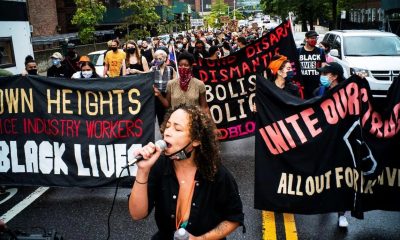
 News5 months ago
News5 months agoThe Rise of Woke Ideology in Western Culture
-

 Business5 months ago
Business5 months agoWayfair CEO: Employees Need To Work Longer Hours, After Laying Off 5% Off The Company
-

 Learning4 days ago
Learning4 days agoExploring TVA Nouvelles Quebec’s Premier News Source

